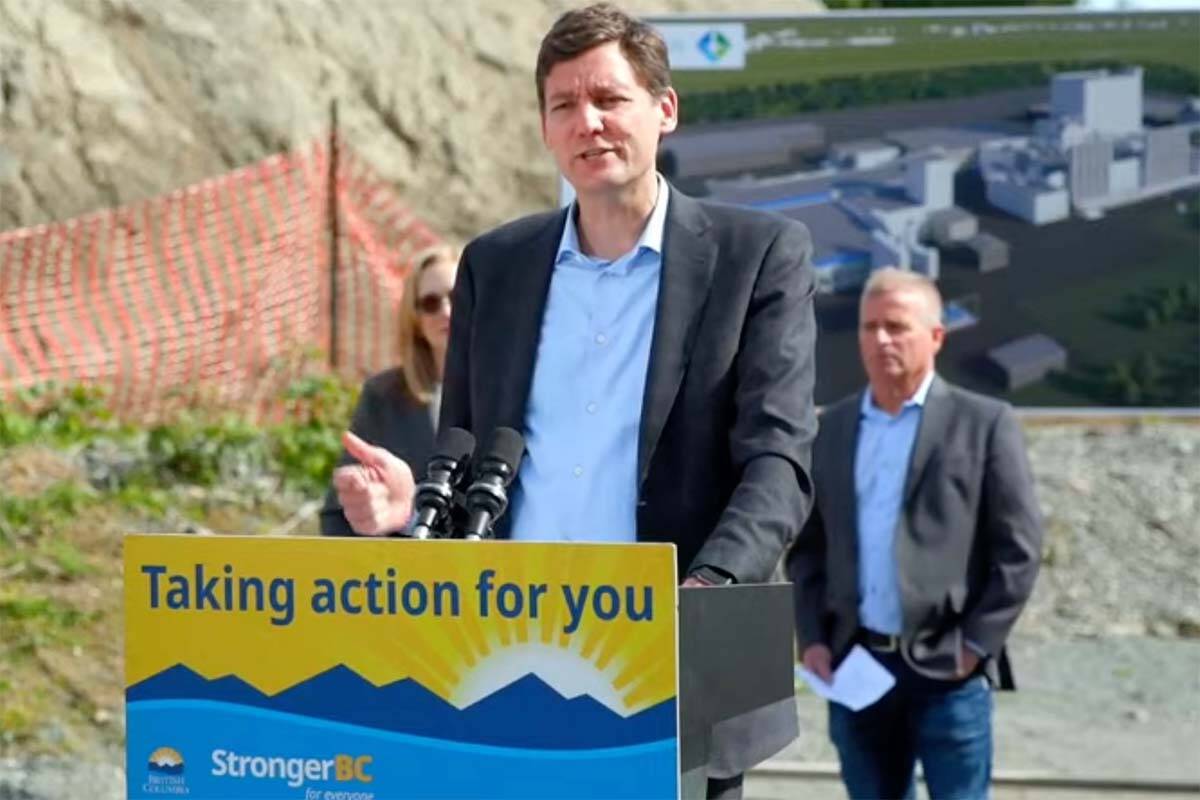B.C. has pressed the pause button on a bill allowing government to sue social media giants and other “big faceless corporations” for “hurting people.”
Premier David Eby’s office announced the decision in a statement (April 23). Government will convene an “online safety action table” with Meta, Snap, TikTok and X representatives during the pause.
Bridgitte Anderson, president and CEO of the Greater Vancouver Board of Trade, welcomed the move announced Tuesday (April 23).
Anderson’s organization was among several provincial business organizations and parts of the provincial opposition to call for such a step because they considered Bill 12 — the Public Health Accountability and Cost Recovery Act — too vague and expansive.
The legislation — which was still being debated in the legislature — would allow the province to “recover a broad range of health-related expenditures from wrong-doers” for population-level harms, whether they are individuals or large corporations.
The bill would allow government to recover costs associated with the promotion, marketing and distribution of products deemed harmful to adults and children in building on previous legislation to enable litigation against tobacco and opioid manufacturers. Directors and officers of those companies could also be held liable.
“We hope that the government chooses not to pursue Bill 12 in the future,” Anderson added. “Instead, we would welcome the opportunity to work with the government to develop measures that are well-targeted and effective, ensuring they protect British Columbians without causing unintended consequences.”
RELATED: B.C. ‘classic consumer protection’ law raising unintended consequence concerns
RELATED: Legislation to allow B.C. to sue social media giants, others for ‘hurting people’
Government tabled the legislation last month after Eby had promised the parents of 12-year-old Carson Cleland to hold social media companies accountable following Carson’s suicide death. Cleland was a victim of online sextortion, which included the sharing of intimate images to an online user who had pretended to be a young girl. Cleland then received extortion threats.
Eby’s statement referenced this history and said that the upcoming meeting will discuss “tangible steps,” which will ultimately protect children before online harms.
“Premier Eby made a promise to Carson’s parents that his government would find ways to make sure Carson left behind a legacy that will help protect other young people,” it reads. “Helping young people stay safe online is one of the most important challenges facing families, parents and social media companies today.”
Eby said during an unrelated event in Abbotsford that is “safe to say” that B.C. got the attention of these companies, when asked why his government is now working with these companies after having raised questions about their trustworthiness.
Eby said government will be working with the social media companies along a “fixed” timeline and in “good faith” to change in a “meaningful way” the interactions of children with social media.
“They also understand that the bill is still there,” Eby said, adding that the upcoming discussions were “entirely due” to the bill.
When asked about the pressure from provincial business groups, Eby acknowledged “broader anxieties” within the business community about the bill, but added that the intent of the bill was always clear.
BC United Leader Kevin Falcon called the pause “a significant victory for transparency, accountability and sensible governance” in B.C. in statement. The decision also “reaffirms” his party’s “effective and results-driven role” as B.C.’s official opposition, Falcon added.

